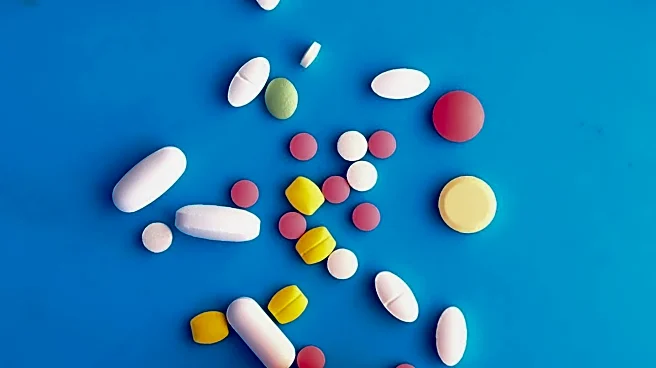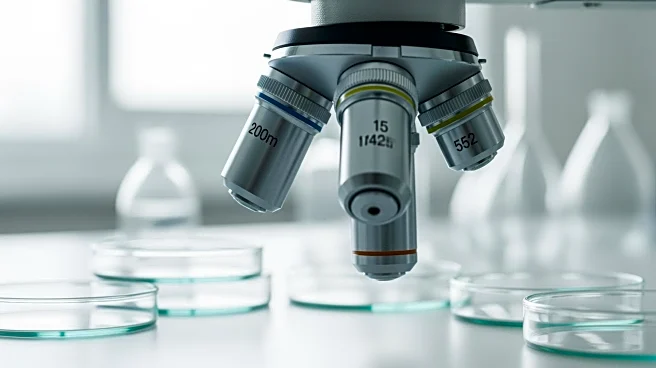What's Happening?
The development and adoption of biosimilar medicines in the United States are lagging behind Europe, despite their potential to significantly reduce healthcare costs. Biosimilars are essentially generic
versions of biologic drugs, which are complex medicines made from living organisms. The U.S. regulatory and market access pathways for biosimilars are more complicated and expensive compared to Europe, with costs ranging from $250 to $300 million to bring a biosimilar to market. This has discouraged many developers from pursuing biosimilar production. For instance, in the adalimumab market, known by the brand name Humira, biosimilars have been available for several years but the brand still retains a significant market share. Over the next decade, 118 biologic products in the U.S. are expected to lose exclusivity, representing $230 billion in sales, yet only about 12 are being developed into biosimilars.
Why It's Important?
The slow adoption of biosimilars in the U.S. has significant implications for the healthcare system and patients. Biosimilars offer a cost-effective alternative to expensive biologic drugs, potentially saving billions in healthcare costs. However, the preference for brand-name drugs and the high cost of biosimilar development hinder their market penetration. This situation affects patients who could benefit from more affordable medication options. The lack of competition in the biologic drug market keeps prices high, impacting insurance premiums and out-of-pocket costs for patients. The U.S. healthcare system could benefit from policy changes that streamline the regulatory process and encourage the development of biosimilars, ultimately leading to more competitive pricing and increased access to essential medications.
What's Next?
To address these challenges, stakeholders in the U.S. healthcare system, including policymakers, pharmaceutical companies, and healthcare providers, may need to collaborate on strategies to simplify the regulatory process and incentivize biosimilar development. This could involve revising market access pathways and providing financial incentives for biosimilar manufacturers. Additionally, increasing awareness among healthcare providers and patients about the safety and efficacy of biosimilars could help shift preferences away from brand-name biologics. If successful, these efforts could lead to a more competitive market, reduced drug prices, and improved access to medications for patients.
Beyond the Headlines
The reluctance to adopt biosimilars in the U.S. also raises ethical questions about the accessibility and affordability of healthcare. The high cost of biologic drugs can limit treatment options for patients, particularly those without comprehensive insurance coverage. By not fully embracing biosimilars, the U.S. healthcare system may be perpetuating inequalities in access to essential medications. Furthermore, the environmental impact of producing biologic drugs versus biosimilars could be another area of concern, as biosimilars may offer a more sustainable production process.









